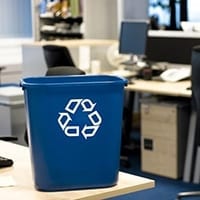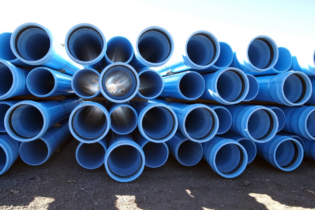- All refuse to be correctly separated according to local authority regulations
- Glass, plastic bottles and foil food trays to be rinsed or washed
- Lids to be removed from jars and plastic bottles
- Metal cans and plastic containers to be crushed
Hall explained the reason for this. “Plastic bottles and their lids are made of different kinds of plastic,” he said. “Melting them down together results in unacceptable contamination, leaving the new plastic unusable.”
He said it was as simple as binning the lids otherwise “some poor person at the recycling plant has to pop them all off by hand.” The company devised a simple household strategy to help people recycle better called wash and squash. Hall explained that rinsing out used containers and squeezing the air out to remove contamination would enable more energy efficient recycling. “Just rinse out containers, then squash them flat, simple as that,” he said, and indicated that using the dishwasher was fine to clean out containers before placing it in a recycling bin. BusinessWaste managing director David Adams explained that all recyclables were put into the dishwasher on eco-friendly mode. “Then it’s ready for the recycling bin with zero extra effort,” Adams said. “Any householder can do that – just don’t do special loads for your rubbish, because that’s unbelievably wasteful.” While the survey indicated that approximately 6% got it right, BusinessWaste said that the remainder only had to make minor changes to recycle effectively and efficiently. “Yes, we’re all making mistakes with our household rubbish,” Hall said, “But that doesn’t make us all recycling criminals.” “If you think about recycling when you’re standing over the bin, chances are you’ll do the right thing,” he said.







